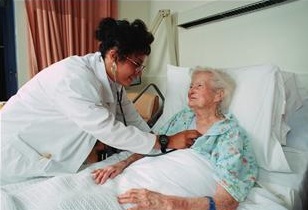 Why is geriatric care so complicated? Why do so many little things seem to go wrong in the care of elders? Some facts will shed some light on the complexities of geriatric care:
Why is geriatric care so complicated? Why do so many little things seem to go wrong in the care of elders? Some facts will shed some light on the complexities of geriatric care:
Older adults with multiple conditions have an average of 37 doctor visits, 14 different doctors and 50 different prescriptions each year.
Nine in 10 older Americans have at least one chronic health condition and 77% have multiple chronic conditions.
Large numbers of older adults with multiple chronic health conditions report duplicate tests
and procedures, conflicting diagnoses for symptoms, contradictory medical information, and not receiving adequate information about potential drug interactions.
A typical primary care doctor who sees Medicare patients must coordinate care for those
patients with 229 other physicians in 117 different practices.
Wow! If you didn’t think geriatric care was complex before reading those statistics, they are definitely eye-opening. They come from various studies compiled by the Campaign for Better Care, which also pulled together a great deal of information on the costs that result. For those of us assisting clients in coordinating care, we know the impacts for individuals all too well. With these complexities, there are many factors that can make care go wrong…or right.
In our experience helping families navigate care, here are a few of the reasons we believe geriatric care is so complex:
- Patients with multiple conditions inherently present challenges and time-intensive needs. The balance of ensuring that all conditions are managed properly and coordinating amongst various specialists requires careful oversight.
- Older patients may not be accurate in reporting information, keeping track of medications, etc. especially if they have memory issues or simply a complicated medical situation.
- In Florida, in particular, many seniors are at a distance from adult children and other family members who may be involved in helping coordinate care. Trying to assist a loved one to manage care from a distance comes with unique challenges.
- Seemingly simple issues can complicate care and these issues are not necessarily a typical part of the medical care process, though providers trained in geriatric care have an understanding of their importance. Some examples include: timing of medical equipment delivery after a hospital discharge, ensuring nutritional needs, patients missing appointments due to memory issues or lack of transportation.
We have written many articles on our blog as well as for other publications about some of these issues, particularly the problems in hospital readmissions for seniors, which result from many of these complexities. Many hospitals and other geriatric care providers are working on systems to address these issues and programs to reduce unnecessary readmissions. While many simple individual factors may make up the problem, taken all together, the “problem” is complex to solve.
What are some of the ways families and seniors can contribute to their own improved geriatric care?
- Find out what type of specialists you need and when. Depending on your loved one’s age, diagnoses and history, it may be time for a geriatric specialist or someone to manage the specific condition. A primary care physician trained in geriatrics has the training to recognize some of the issues stated above. But, also understand that when seeing a variety of specialists, care coordination is a must and an area where the patient, family or advocate are going to have to take an active role (and/or bringing in a professional patient advocate to help).
- Communication is one of the most important factors and frequently breaks down. You (or your advocate) need to share you medical history, provide accurate background, and help providers to gain a picture of the situation so they can do the best job. For example, a typical elder presenting at the emergency room without an advocate may not be able (whether due to memory issues of just being too ill) to report accurately or may not share everything that is happening. This can make it very difficult for the providers, who are seeing this patient for the first time, to make a good decision about course of treatment/admitting the patient to the hospital. There is also a vital need to communicate between providers, ask questions and follow up as needed.
- Watch medication issues carefully. When you have a hospitalization or a new specialist, check about medication interactions. You should: always provide an up-to-date list (or the bottles themselves) of everything you are taking; consider a pharmacist review (there are geriatric consultant pharmacists also); double check that you understand all medications and how to take them; make notes of medications that cause side effects or don’t work and provide that to each medical provider as well. Review if your loved one really understands and can manage the various medications and consider medication management services.
Need help from a professional patient advocate or want to find out more about the ways an advocate can help your family improve your geriatric care outcomes? Call us at 727-447-5845 or click below to request more information:
We invite you to share your experiences with geriatric care in the comments section below. What have you found most challenging? What are your frustrations (whether as a patient, family member or medical provider)? What resources have helped you?


 Popular Downloads
Popular Downloads


 Get Our Newsletter!
Get Our Newsletter! Mission Statement
Mission Statement

